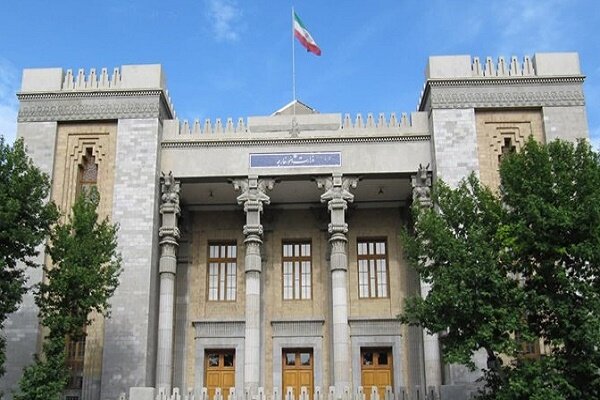The sanctions were due to expire next month under the agreement, which is officially known as the Joint Comprehensive Plan of Action (JCPOA). The European trio, aka the E3, which is part of the deal, however, announced on Thursday that they intended to keep the bans beyond the deadline.
Reacting to the decision shortly afterward, Iran's Foreign Ministry said it considered it to be "an illegal measure," and contrary to the trio's commitments under the JCPOA and the United Nations Security Council Resolution 2231 -- that has endorsed the JCPOA.
"The decision amounts to a tension-building measure, which is taken in bad faith," read a statement by the ministry.
The European countries had cited three reasons for their decision, including their allegations that Iran has transferred drones to Russia, which is engaged in a war against Ukraine, as well as, what they call, the likelihood that Tehran might provide Moscow with ballistic missiles.
The Islamic Republic has roundly rejected both the allegations, citing its categorical rejection of the war.
The threesome European countries have also accused Iran of violating the JCPOA, referring to a number of legal nuclear countermeasures that the Islamic Republic began to take after the United States illegally left the JCPOA in 2018 and the three states failed to offer any compensation for the US's withdrawal.
The Foreign Ministry reminded that Iran began the countermeasures in line with the JCPOA's Articles 26 and 36 allowing the deal's participants to scale back their commitments should the other parties do the same.
It also noted that Iran launched the retaliatory steps after giving Washington and the E3 a year to make up for their violation of the JCPOA.
The statement, therefore, called the trio's decision "completely void of legal logic."
It called it "unacceptable" for the E3 to base their decision on "actions on the part of Iran that are completely legal and [were taken] in reaction to the US's withdrawal and the European trio's inaction."
"The European parties' measure will definitely be counterproductive for the efforts that are aimed at management of [existing] tensions...," the statement said.
The decision, it added, "is irreconcilable with the European parties' claim that they would try to create the necessary atmosphere for the revival of the JCPOA."
MNA/Press TV






Leave a Reply